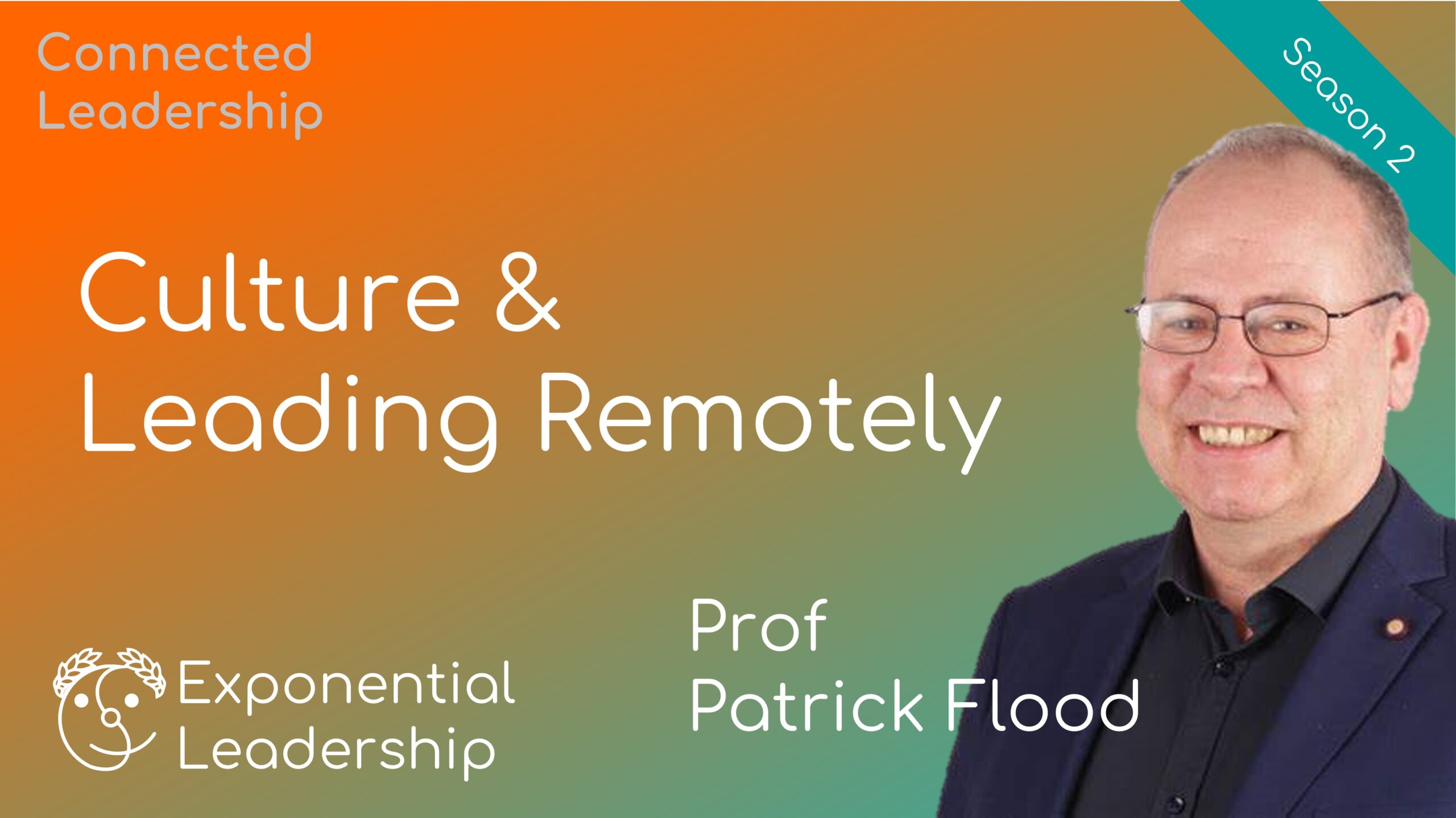What are some of the challenges leaders face in today’s leadership landscape?
As an international expert in organisational behaviour, leadership and change management, Patrick Flood joins us a guest on the Exponential Leadership podcast to discuss some of the biggest challenges today’s leaders face.
A Professor of Organisational Behaviour at Dublin City University, he holds the DCU President’s award for Overall Teaching and for Research. Patrick achieved his PhD at London School of Economics and his research on the impact of leadership and human resource practices on organisational performance, underpins his work as a speaker, educator, consultant and commentator.
With his expertise in organisational behaviour, leadership and change management, Professor Flood has invaluable insights into the challenges leaders are facing in today’s marketplace and how we can overcome them.
Challenges leaders face today
Workplace culture
In today’s workplace, the biggest stressors that leaders face are coping, dealing, and figuring out the impact of the pandemic and more recently the war between Russia and Ukraine. These global upsets have changed the work and leadership landscape in terms of how we work and learn, as well as affecting the culture of organisation. Before the pandemic, people were accustomed to working in a corporate setting, with hundreds or thousands of other employees. This is no longer the case, as people can now work from home or come into the office occasionally.
Patrick says that “the culture has to be more fragmented than it was, there are still a lot of questions about how culture has changed during the pandemic, and I don’t think we know the answers to those questions, yet.” Meaning that until more research is put in to further understand the impact the pandemic has had, we do not yet have any clear-cut answers. However, Patrick does believe that there will no longer be a communal
workplace culture in the new hybrid workplace environment.
Connection
Another aspect that is and will continue to be a challenge is how connection amongst teams is approached. With members of a company working remotely, leaders in an organisation cannot physically see how everyone is coping. This will mean that connecting with your team members will have to be much more intentional, and leaders will have to be intentional about regularly checking in with employees. This focus will need to be finding out how employees are doing in terms of their wellbeing, instead of just checking up on employee productivity.
Additionally, organisations will have to change their view on employees engaging, connecting, and giving their opinions. Patrick explains that “there’s a lot of organisations where it’s not psychologically safe to speak up, or to give your opinions, and all I can see in that hybrid environment is that people will close off even further.” For an organisation to build trust within their teams, they will need to create an environment that is psychologically safe and conducive to human connection amongst superiors and subordinates. Psychological safety will increase trust for employees and make it easier for them to speak often and honestly with their superiors.
With the workplace environment changing, there are going to be new dynamics to consider. Challenges do not necessarily have to be an expense, rather they should also be viewed for what beneficial changes they can bring to the workplace. With changes at work, such as remote working for example, many companies have implemented new processes that have positively affected employees and resulted in an increase in productivity. However, there are areas that do require more attention, such as establishing trust, communication, and forming cohesive bonds. Leaders are most needed in these areas today and will need to make a conscious effort to achieve greater connection and build trust with their teams.
What can leaders do to help?
Create bonds
Professor Flood explains that as leaders, one way we can help create cohesion is through “creating social bonds amongst workers who are operating in a virtual world, but also a fragmented world.” A way leaders can help form social bonds between employees is by promoting interaction amongst them. Although this is not as easy in a work from home environment, it is possible. Leaders can make use of creative online social events to help employees form bonds, even when working remotely.
Build trust
Establishing trust is a crucial aspect that leaders should focus on in today’s working world, especially for remote teams. Professor Flood explains that there are three aspects of trust to consider.
The first is competence-based trust, which is where you trust that a person can do their job.
The second one is integrity-based trust, and he explains, “Which is that I think you’re probably honest. And you operate according to an acceptable set of business principles.”
The third is benevolence-based trust which means, “I can turn my back on you.” Meaning that you trust that you will not be left out on important decisions and discussions in the organisation.
Employees look towards their leaders for guidance and by showing altruistic behaviour and demonstrating that they care, it sets a tone and standard in the organisation.
Patrick says that as a first step to building trust and showing that you care as a leader, begin by greeting someone and starting a conversation. It is a simple gesture, but it can have a significant impact on your employees. Being compassionate in simple ways can be a way to start building trust.
Fairness in a virtual world
Any leader managing a team should be aware of two things. The first is that they must be transparent and fair with everybody. Patrick says that there will naturally be people on the team who do more in the organisation, and this should also be recognised. He explains that there needs to be a balance between recognising merit and being fair to show the team that everyone is being treated equally.
Vulnerability
Vulnerability is a key element that leaders should be making space for in their organisations. This is not an uncommon or new theme in the workplace environment. Patrick explains that leaders should show vulnerability because it “shows their humanity to their followers, and that they can empathise with the people that they are leading, and that people will respond in kind to that leadership.
Professor Flood advises caution when it comes to making space for vulnerability. He says this needs to be considered carefully, as depending on the workplace culture this can be exploited. If the workplace is an unsafe one, rather test the waters and show gradated vulnerability. Keep in mind that you should always state who you are and your values in a way where other leaders or stakeholders will not be able to exploit it.
In today’s workplace there are new challenges that leaders face. These challenges can be overcome in ways that can benefit the organisation’s culture and transform it into a cohesive environment for all. Where employees can communicate freely and trust the people in their teams. This starts with leaders setting an example and showing that the workplace can be one of fairness, compassion, and trust.



